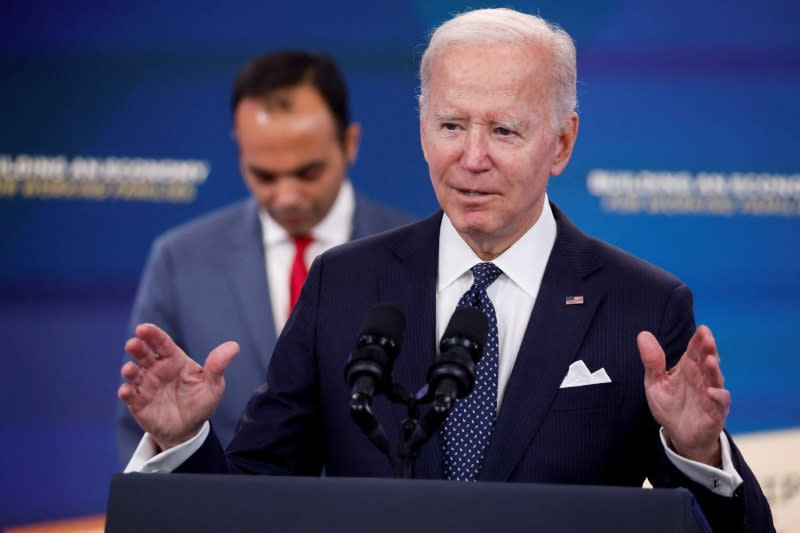Biden admin unveils proposed curbs on overdraft fees

By Douglas Gillison
(Reuters) -The Biden administration on Wednesday unveiled new draft regulations officials said could save consumers $3.5 billion a year by curbing the fees large banks charge on overdrawn deposit accounts.
The announcement marked the latest effort in U.S. President Joe Biden's crackdown on the so-called junk fees consumers face across various industries such as housing, tourism, medicine and finance.
Republicans battling for their party's nomination in this year's presidential elections have sought to capitalize on a post-pandemic surge in consumer prices to hammer at Biden's poor public approval ratings on the economy.
Biden in a statement called overdraft fees "exorbitant" charges allowing banks to boost earnings to the detriment of vulnerable wage earners.
"Banks call it a service -- I call it exploitation," he said.
The U.S. Consumer Financial Protection Bureau said the proposed new rule, if adopted, would close a regulatory loophole that had unfairly allowed banks to extend costly credit on undisclosed terms to less wealthy depositors.
At $35, such charges are typically greater than most consumer overdrafts of $26, the agency said.
The agency in recent years has brought several enforcement actions against banks for improper use of overdraft fees.
About 23 million households pay such fees in a given year, with banks bringing in $12.6 billion in 2019. Wells Fargo and JPMorgan Chase & Co together accounting for a third of all such revenue collected by banks above $1 billion in assets in 2022, according to the CFPB.
Lindsey Johnson, head of the Consumer Banker's Association, on Wednesday called on the CFPB to withdraw the proposal, which she called "politically driven." She said in a statement that industry use of overdraft fees was already falling and that the burden of new regulation would undo this progress.
The CFPB in a report last month said a quarter of consumer households were charged overdraft fees during the prior month and in most cases this came as a surprise.
The new proposal would apply to banks with more than $10 billion in assets, allowing them to assess fees of between $3 and $14 to recover losses from overdrafts -- or more if they can provide cost data to show why this is justified.
The rule would also allow them to offer overdraft loans if they make clear disclosures, such as applicable interest rates, subject to the same regulations governing other forms of consumer credit.
The proposal is now subject to a period of public comment, with officials saying they expect a final version to take effect in late 2025.
(Reporting by Douglas Gillison; Editing by Michael Perry and Mark Porter)


